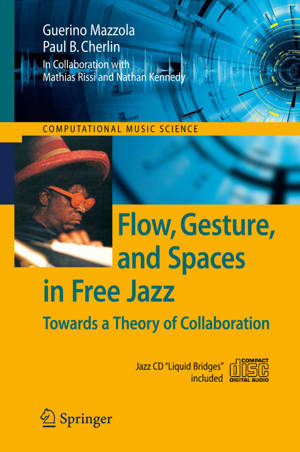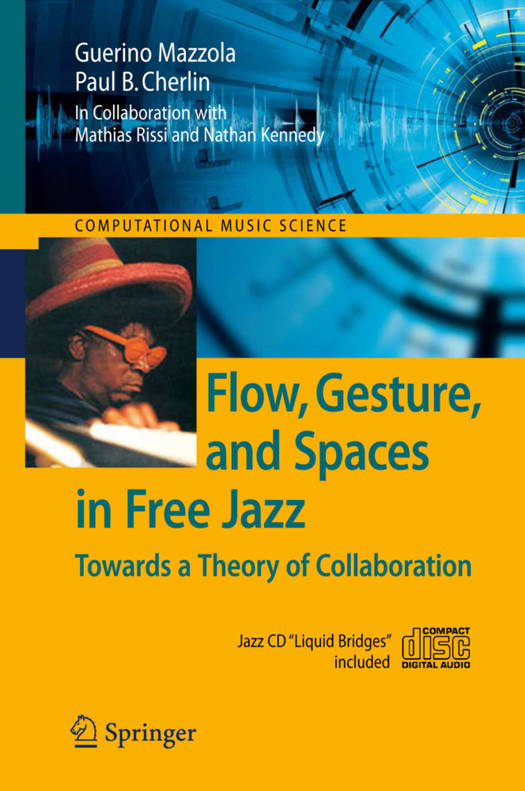
- Afhalen na 1 uur in een winkel met voorraad
- Gratis thuislevering in België vanaf € 30
- Ruim aanbod met 7 miljoen producten
- Afhalen na 1 uur in een winkel met voorraad
- Gratis thuislevering in België vanaf € 30
- Ruim aanbod met 7 miljoen producten
Zoeken
Flow, Gesture, and Spaces in Free Jazz
Towards a Theory of Collaboration
Guerino Mazzola, Paul B Cherlin
€ 52,95
+ 105 punten
Uitvoering
Omschrijving
Let s try to play the music and not the background. Ornette Coleman, liner notes of the LP Free Jazz [20] WhenIbegantocreateacourseonfreejazz, theriskofsuchanenterprise was immediately apparent: I knew that Cecil Taylor had failed to teach such a matter, and that for other, more academic instructors, the topic was still a sort of outlandish adventure. To be clear, we are not talking about tea- ing improvisation here a di?erent, and also problematic, matter rather, we wish to create a scholarly discourse about free jazz as a cultural achievement, and follow its genealogy from the American jazz tradition through its various outbranchings, suchastheEuropeanandJapanesejazzconceptionsandint- pretations. We also wish to discuss some of the underlying mechanisms that are extant in free improvisation, things that could be called technical aspects. Such a discourse bears the ?avor of a contradicto in adjecto: Teachingthe unteachable, the very negation of rules, above all those posited by white jazz theorists, and talking about the making of sounds without aiming at so-called factual results and all those intellectual sedimentations: is this not a suicidal topic? My own endeavors as a free jazz pianist have informed and advanced my conviction that this art has never been theorized in a satisfactory way, not even by Ekkehard Jost in his unequaled, phenomenologically precise p- neering book Free Jazz [57]."
Specificaties
Betrokkenen
- Auteur(s):
- Uitgeverij:
Inhoud
- Aantal bladzijden:
- 141
- Taal:
- Engels
- Reeks:
Eigenschappen
- Productcode (EAN):
- 9783642432842
- Verschijningsdatum:
- 14/11/2014
- Uitvoering:
- Paperback
- Formaat:
- Trade paperback (VS)
- Afmetingen:
- 156 mm x 234 mm
- Gewicht:
- 226 g

Alleen bij Standaard Boekhandel
+ 105 punten op je klantenkaart van Standaard Boekhandel
Beoordelingen
We publiceren alleen reviews die voldoen aan de voorwaarden voor reviews. Bekijk onze voorwaarden voor reviews.











